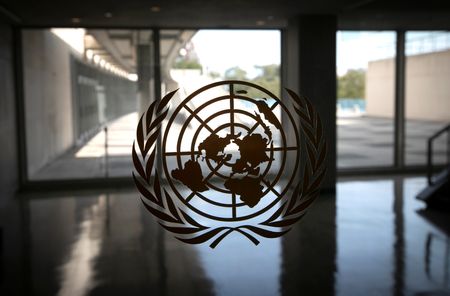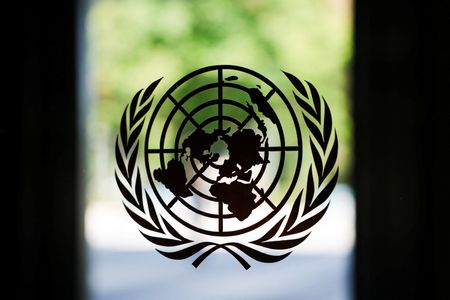By Shariq Khan
NEW DELHI (Reuters) – European prices of liquefied natural gas (LNG), which are currently trading at a premium to Asia, are reaching levels that will start hurting demand, the chief executive of global energy and commodities trading firm Vitol said on Wednesday.
“Europe is attracting much more LNG and the European price has overtaken the Asian price now … Typically it’s the other way,” Russell Hardy said at the India Energy Week conference in New Delhi.
Higher European prices have drawn more LNG supplies to the region, with traders even diverting some cargoes that were on course for Asia, as countries seek to replace piped Russian gas after the Ukraine transit deal expired on Jan. 1 and amid lower temperatures.
Due to this trend, Hardy said Europe will have enough gas to refill its gas inventories, but added that government intervention will be required to ensure adequate winter supplies of LNG.
“We’ve got a very unusual situation where the gas market is backward going into summer, so the price for summer is above the price for January next year. That’s just counter-intuitive to a winter-based market,” he said, as Europe’s winter demand is normally higher than in summer.
“So you’ve got this imbalance, and the European Union is rightfully concerned about winter supply and keeping people warm is a major priority … It’s just a concern today that that won’t happen without a degree of force being brought in to make it happen. That instruction is developing in the EU and is going to come probably with some incentives or subsidies or negatively-priced storage.”
Europe’s gas stores are currently 48.48% full, compared with 67% at the same time last year, data from gas Infrastructure Europe showed.
While global supply is “tight at the moment,” Hardy added that he does not expect new policies in top producer the United States to change the global supply balance, which will see some 200 million tons of new LNG supply coming to the market between 2028-2031.
“I don’t think the new U.S. policies are going to dramatically change that balance out to 2030, but they may have an impact in the next decade,” he said.
(Reporting by Shariq Khan in New Delhi, writing by Emily Chow in Singapore; Editing by Himani Sarkar and Kim Coghill)











